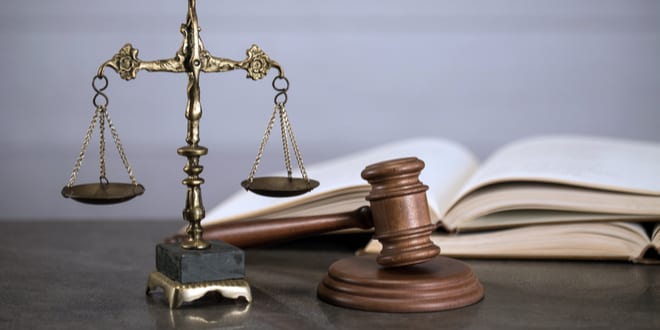Confidence in Israel’s justice system, once so high, has slumped, and the time has come for the system to stop blaming everyone but itself. — Professor Yuval Elbashan in “Justice: The public’s loss of trust,” Globes, Dec. 30, 2021
This is the first in a three-part series on the grave dysfunctionality of Israeli law enforcement.
The recent revelation of allegedly grave abuse of spyware by the Israel Police has, despite the frenetic (and partisan) efforts to diminish its profoundly perturbing impact, at long la
Documented erosion of trust
Indeed, several verdicts passed down by the courts have been clearly at odds with the common-sense perception of natural justice across wide swathes of the Israeli public.
st thrown into sharp relief the grim foreboding many have expressed for years as to the functioning of Israeli law enforcement in general, and the Israeli judiciary, in particular.
This assessment is not a reflection of the subjective bias of the author, but an accurate account of the findings of numerous surveys, conducted by institutions whose political leanings generally tend to the left of the political spectrum—and which portray a highly unflattering (to be charitable) level of confidence, not only in the judiciary but also in the police and the state prosecution.
Significantly, a November poll by Haifa University showed that while almost a third of the public expressed low-to-very-low confidence in the judicial system, only 7% (!) had high-to-very-high confidence in it.
This erosion of public trust in the justice system has been ongoing for more than a decade. Indeed, as early as 2004, Professor Ran Hirschl, wrote in Towards Juristocracy (Harvard University Press): “Over the past decade, the public image of the Supreme Court as an autonomous and impartial arbiter has been increasingly eroded.”
Three instructive instances
According to Hirschl: ” … [A]s political arrangements and public policies agreed upon in majoritarian decision-making arenas are likely to be reviewed by an often hostile Supreme Court … the court and its judges are increasingly viewed by a considerable portion of the Israeli public as pushing forward their own political agenda.”
It is, therefore, possible to trace the emergence of this dwindling public confidence in the judiciary, in general, and the Supreme Court, in particular, over a considerable period of time, and to cite numerous studies and surveys gauging its development.
However, three prominent episodes will suffice to illustrate just how grave the situation has become and just how detached judicial decision-making is from the everyday criterion of fair play and equitable administration of justice.
The first is the determination by the court of the eligibility of candidates and party lists of the dominantly Arab anti-Zionist factions to participate in the Knesset election.
The second is the conviction of Amiram Ben Uliel for the deaths of the Dawabshe family members who perished when their house in the Arab village of Duma was set ablaze on July 31, 2015.
The third is the decision of the court not to dismiss the indictments against former Israeli Prime Minister Benjamin Netanyahu by invoking the legal principle of “abuse of process.”
The letter of the law
With regard to the first case, the eligibility—or lack thereof—for participation in elections for the Knesset is laid down in Article 7A of Basic Law: The Knesset, according to which: “A candidates’ list shall not participate in elections to the Knesset, and a person shall not be a candidate for election to the Knesset, if the objects or actions of the list or the actions of the person, expressly or by implication, include one of the following: (1) negation of the existence of the State of Israel as a Jewish and democratic state; (2) incitement to racism; (3) support of armed struggle, by a hostile state or a terrorist organization, against the State of Israel.”
Even a cursory perusal of the official platforms of the dominantly Arab anti-Zionist parties in the current Knesset—the Joint List and the United Arab List (Ra’am)—will reveal a rejection of Israel as the nation-state of the Jewish people that is both unabashed and undisguised (i.e., both factions are in unequivocal violation of the explicit letter of the law.) Yet, astonishingly, their participation in the Knesset elections, as well as that of individual candidates who show seditious support for Israel’s enemies, is invariably, and inconceivably, approved by the Supreme Court.
For example, in its founding platform, Ra’am, today the sine qua non of the Naftali Bennett-Yair Lapid coalition, brashly declares Israel must be a “state of all its citizens” and calls for “drafting a constitution which recognizes the Arabs as a national [not ethno-religious] minority and changing the [Jewish] symbols of the state to reflect this”—i.e., for the purging of any Judaic signs in public life in the country. In later elections, Ra’am explicitly touted “the conversion of Israel into a [non-Jewish] state of all its citizens.”
Blatant violation of the letter (and spirit) of the law
In a similar vein, the platform of the Joint List proclaims that the legislative initiatives to secure Israel’s status as a Jewish state are “discriminatory and anti-democratic” endeavors that are both “racist” and “fascist” in nature.
Significantly, both the Joint List and Ra’am concur on several points that would inexorably undermine the ability to maintain the dominantly Jewish character of Israel. For example, both parties endorse the “right of return” for the millions of Palestinian Arabs living in the “diaspora” into the pre-1967 borders of Israel, which is a certain formula for flooding the country with inimical Muslims, and inevitably would imperil its ability to endure as a Jewish state.
Moreover, both parties call for the release of all Palestinian Arabs imprisoned for participation in acts of terror, including perpetrators of the most brutal and bloodcurdling acts of slaughter, which will, as less radical prisoner releases in the past have tragically shown, undermine both the national security of Israel and the personal safety of Israelis.
Furthermore, a number of members of the Joint List have—by word and deed—expressed overt support for, and solidarity with, some of Israel’s most vehement enemies in times of conflict. Yet despite this being a glaring contravention of Article 7A of Basic Law: The Knesset, the Supreme Court repeatedly refused to disbar them from participation in the parliamentary elections, by overturning decisions of the Central Election Committee of the Knesset.
The failure to enforce the law (cont.)
But perhaps the most blatant and brazen disdain for the law was the 2018 attempt by three Knesset members of the Joint List (Jamal Zahalka, Haneen Zoabi and Joumah Azbarga) to introduce legislation that would strip Israel of its dominant Jewish character.
Referring to the attempted Joint List legislation, the Knesset’s legal counsel, Eyal Yinon, noted that this was a “proposal … that seeks to deny Israel’s existence as the state of the Jewish people [and] includes several articles that are meant to alter the character of the State of Israel from the nation-state of the Jewish people to a state in which there is equal status from the point of view of nationality for Jews and Arabs.”
Moreover, Yinon underscored that the proposed bill opposed the principle according to which the state symbols reflect the national revival of the Jewish people, and rejected making Hebrew the principal language of the state.
Apart from this explicit determination by the Knesset legal counsel, it is hard to conceive of how any rational person could avoid the following conclusion: The deeds and the declarations of both the Joint List and Ra’am prove irrefutably that these parties—and their individual candidates, who presumably subscribe to their parties’ ideas and ideology—are in grave breach of the conditions laid down by law for the participation in Knesset elections.
They should therefore be barred from taking part in them. Inexplicably, the Supreme Court has refrained from taking action that is clearly demanded. It has, thus, clearly failed to uphold the law.
In conclusion: It is important to underscore that banning the Joint List and Ra’am in no way implies that the Arab citizens of Israel should not be permitted to vote; only that they will not be able to vote for parties that reject the very basis on which the state was founded.
(Coming soon: “Part II—Duma, Dawabshe and the presumption of guilt”)
Reprinted with author’s permission from Jewish News Syndicate






